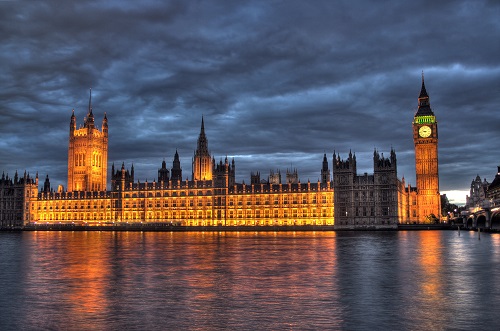
As Americans made their final arrangements for Thanksgiving, UK Chancellor of the Exchequer Philip Hammond unveiled the annual Budget on Wednesday. Here’s what you need to know.
The Budget will spend a total of £809 billion ($1 trillion U.S.), adding £41 billion to the national debt.
It makes two policy changes to address the housing shortage, the most important issue to young Brits. Hammond pledged £15.3 billion to build 300,000 homes a year – but none on the so-called greenbelt, an environmentally protected area. Free market critics say that policy favors the wealthy at the expense of the poor.
Hammond also gives a tax incentive to first-time homebuyers. They will not pay the “stamp duty” (a multi-tiered national tax paid at purchase) on the first £300,000 of any home worth up to £500,000. This, coupled with the decision to give reduced fare railcards to people up to age 30, is seen as the Conservative Party’s attempt to make (much-needed) inroads with younger voters.
The Budget also spends:
- £3 billion over two years to prepare for the UK’s post-Brexit future. This will be especially vital if negotiations fail to realize a “deep and special relationship” after 2019;
- £100 million to subsidize drivers who purchase electric vehicles;
- £1.5 to eliminate the seven-day waiting period before making a welfare claim through its Universal Credit system (which handles a variety of programs for low-income and unemployed people);
- £2.8 billion to reduce emergency room waiting times in NHS hospital A&Es, which independent observers described as a “humanitarian crisis” earlier this year; and
- £29 billion for national defense, again meeting NATO guidelines.
Additionally, the Budget imposes higher “sin taxes” on cigarettes, hand-rolled tobacco, and hard cider (but not other forms of alcohol), raising them beyond the rate of inflation.
What’s missing?
Philip Booth writes in a new analysis posted at Religion & Liberty Transatlantic that the Budget could be characterized by its “sins of omission.”
“It is not that the Chancellor did anything especially evil (or virtuous),” Booth writes. “However, he chose not to take decisions that could make a real difference – joining a long line of Chancellors who have put avoiding a potential media backlash ahead of making bold, forward-thinking economic reforms.”
Chief among them, he writes, are:
Housing. British land-use-planning (or zoning) laws reduce supply and, Booth writes, are spurring “young people toward favouring extreme forms of collectivism.” Other UK commentators agree housing is the Budget’s chief oversight. Sam Bowman, executive director of the Adam Smith Institute (ASI), writes, if “3.7 percent of London’s green belt made available in this way [it] would give us land for one million new homes.” His colleague Sam Dumitriu adds, “If they auction off the planning permission for this land, they could raise billions.” Other commentators (including Religion & Liberty Transatlantic contributor Ed West) cite other problems with Hammond’s proposed building plan, noting everything from low brick production capacity to high immigration levels.
Simplifying the tax code. The UK’s tax code, Booth notes, is the longest in the world. He gives a flavor of its byzantine nature by focusing on all the variations of just one tax in his essay.
Debt reduction. Great Britain’s annual deficit has fallen “from a peak of 10 percent of GDP in 2009-2010 to 2.3 percent in 2016-17,” said EU finance commissioner Pierre Moscovici on Wednesday, while announcing that the EU no longer considered the UK’s debt “excessive.” But Westminster reminded voters this week that “the UK still has a debt of over £1.7 trillion – around £65,000 for every household in the country.”
What does it mean to people of faith?
The Budget continues a dangerous policy rampant throughout the transatlantic space, economically discriminating against the family. Booth writes:
[A]s was revealed in a recent report by the think tank Care, the UK has a tax system which is extremely unfavourable towards single-earner couples. Additionally, taken together, the UK’s tax and benefit systems discriminate against family formation.
This latter feature of the UK tax and welfare system undermines the family as the most important vehicle for the provision of welfare. The family and not the individual should be the basis of taxation.
For more information, read Booth’s full essay at the Acton Institute’s Religion & Liberty Transatlantic website.
(Photo credit: Maurice. This photo has been cropped. CC BY 2.0.)

